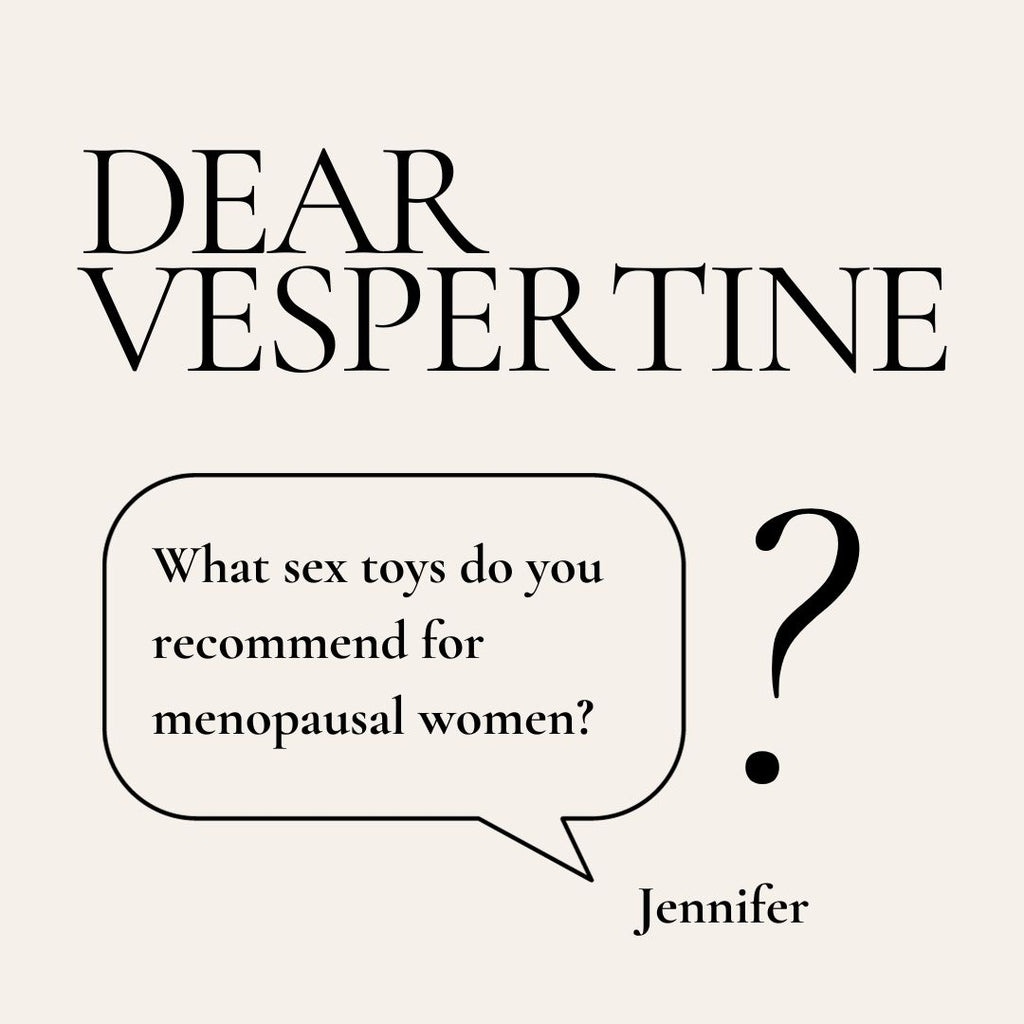At Vespertine Boutique, we understand that intimacy is a multifaceted experience that evolves with age. As we journey through life, our needs and desires change, and so does our approach to building connections with our partners. Foreplay, often viewed merely as a precursor to physical intimacy, plays a crucial role in deepening emotional bonds and fostering a profound sense of connection. In this blog post, we’ll explore the importance of foreplay in fostering emotional intimacy and offer creative ideas for expanding the definition of foreplay beyond physical touch.
The Emotional Essence of Foreplay
Foreplay is not just about preparing for physical intimacy; it's about creating an emotional bridge that brings partners closer together. Emotional foreplay involves engaging the senses, nurturing feelings of trust, and building anticipation. By focusing on emotional connection, couples can experience a more profound sense of intimacy that enhances their overall relationship.
Creative Ideas for Expanding Foreplay Beyond Physical Touch
Mindful Communication
Communication is the foundation of any intimate relationship. Setting aside time for meaningful conversations can deepen your connection. Try discussing your dreams, fears, and desires with your partner. This practice can foster a sense of vulnerability and trust, which are essential components of emotional intimacy.
Product Recommendation:
Couples Communication Cards: These cards feature prompts and questions designed to spark deep conversations and help partners explore each other's inner worlds.
Try Curiosity Cues by VUSH - a deck designed to ignite conversations about sex and intimacy, helping you build a stronger connection and explore new experiences. Sex is meant to be clunky, imperfect, messy, and fun. Embrace the awkwardness and silliness and enjoy the pleasure together.
Shared Experiences:
Engaging in activities together can create lasting memories and strengthen your bond. Whether it's cooking a meal together, taking a dance class, or embarking on a new adventure, shared experiences can enhance your emotional connection.
Product Recommendation:
Gourmet Cooking Class Subscription: Sign up for a monthly cooking class where you can learn new recipes and techniques together, turning meal preparation into a delightful and intimate experience.
Sensory Exploration:
Foreplay can also involve stimulating the senses in non-physical ways. Consider using aromatherapy, music, or art to create an atmosphere that enhances emotional connection. These sensory experiences can evoke emotions and memories, making your time together more meaningful.
Product Recommendation:
Aromatherapy Diffuser and Essential Oil Set: Create a calming and romantic ambiance with a diffuser and a selection of essential oils designed to relax and invigorate the senses.
Pheromone perfumes, candles, oils? https://vespertineboutique.com/collections/vendors?q=Eye%20of%20Love
Curated Music Playlists:
Choose playlists that evoke shared memories or create a soothing backdrop for your time together.
Written Expressions of Love:
Writing love letters or leaving thoughtful notes for your partner can be a powerful way to express your feelings. These written tokens can serve as a reminder of your love and commitment, deepening your emotional bond.
Mindfulness and Meditation:
Practicing mindfulness and meditation together can help you stay present and attuned to each other's emotional needs. This practice can foster a sense of peace and connection, allowing you to appreciate each moment you share.
At Vespertine Boutique, we believe that intimacy is a journey that encompasses much more than physical touch. By expanding your definition of foreplay to include emotional and sensory experiences, you can build a deeper, more meaningful connection with your partner. Whether through mindful communication, shared experiences, or sensory exploration, the art of foreplay is about creating a space where love and connection can flourish.
Explore our curated selection of products designed to enhance your intimate wellness and support your journey towards deeper connection. Remember, the path to profound intimacy begins with the simple act of opening your heart to your partner.
Discover more at Vespertine Boutique – where intimacy and connection come to life.






